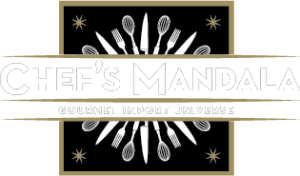Brilliant deductive reasoning aside, if you want to speak to a people speak to their culture. In Elements Euclid wrote that the laws of nature after all are but the thoughts of God. So boring oaths won’t motivate the tribe of Rod. Build a soccer stadium, open a brewery and hold a few beauty pageants and you’ll be good to go!
As we head northward, Trifon tells me about his life. Growing up, the Fotiadis household would go to Bulgaria every Christmas. His uncle had been on vacation there when the country’s borders were closed. Unable to escape back to Greece, Trifon’s family once a year brought Greece to him. This also meant that the Fotiadis’ were labeled by the State as Communist sympathizers.
When Trifon grew up, like me he didn’t want to work for his father. Unlike me, he became a civil engineer and worked for the Greek government (whereas I was bouncing at a bar called Fish House Charlies on the docks of Seattle). Trifon worked in Athens for several years, DJ’ing on the side and enjoying life.
Then one day his Dad got cancer. Trifon had his come to ROD -CRONUS -JESUS moment. He decided to carry on his father’s legacy. By then, the Greek market then was flooded with cheap pulses from Mexico. Retailers didn’t care about quality or brands. They would sell by the scoop out of generic, plastic bins.
The Lentil Visionary
Trifon had a different vision. He would buy only the best products from local Greek farms, bag and sell them to retailers under his brand. Arosis was now 30% more expensive than anyone else. Trifon told me stories about buyers laughing in his face and throwing him out. Everyone was adamant that he would fail.
But Arosis’ quality was much better than what stores had. Bit by bit, Trifon succeeded in turning Greek mothers into loyal bean converts. As he puts it, “his pulses will find the good customers who will appreciate them”.
This strikes me as naïve. Trifon believes that (a) good people = (b) good products. And (b) good products = (c) good businesses. But I realize that his vision is the ruthless logic of geometry translated into commerce.
Americans are more open to some product categories than others. Ask them to pay $30 for a pound of cheese, no problem. But try that with a bottle of extra virgin olive oil, not so easy.
Mediocrity is easier to achieve. It requires less energy to overcome obstacles to success. With expensive premium products though, your manufacturing volumes are lower. Efficiencies of scale don’t help as much. To surmount the same barriers to entry:
(a) more passion = (b) more energy.
(b) more energy = (c) more likely to vanquish the same resistance that causes mediocre companies to fail.
Maybe. Well, definitely– in Greece based on his current success. But in the U.S.A. where we have a 30 minute meal mentality? I started Chef’s Mandala with the same premium concept in mind. Even so, Americans are more open to some product categories than others. Ask them to pay $30 for a pound of cheese, no problem. But try that with a bottle of extra virgin olive oil, not so easy. And pulses aren’t as popular in American food culture.




